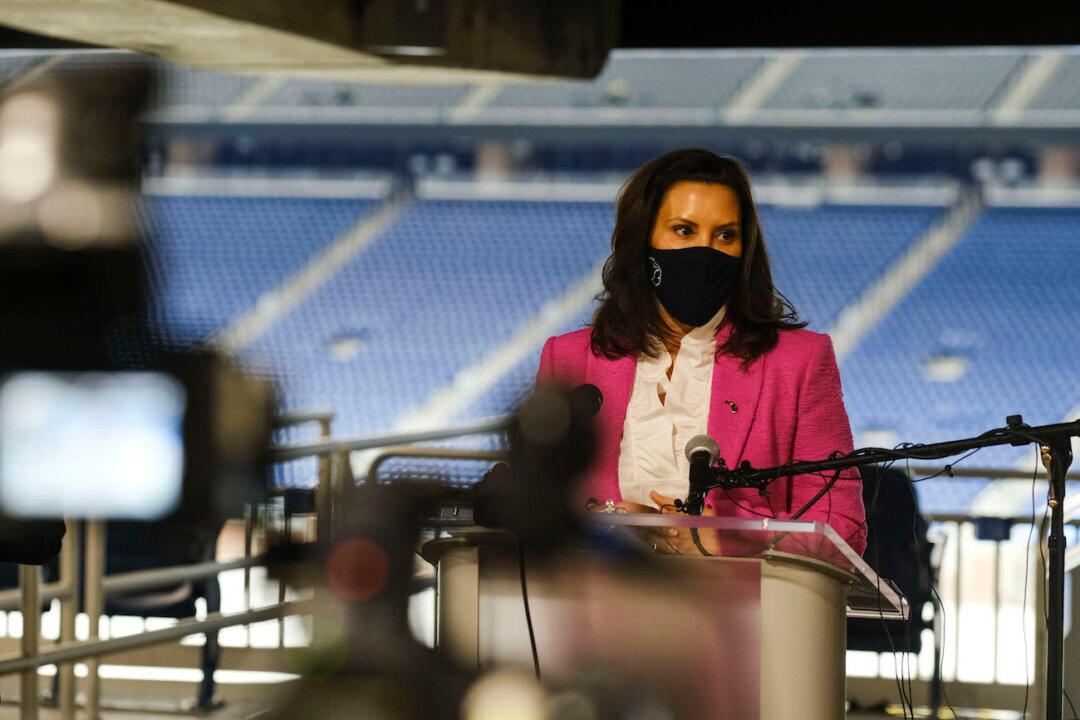Michigan Gov. Gretchen Whitmer on Thursday announced a plan to tie the state’s reopening and lifting of restrictions to the rate at which residents get the COVID-19 vaccination jab.
The effort dubbed the “MI Vacc to Normal” plan lays out four milestones based on the rate of vaccinations against the CCP (Chinese Communist Party) virus, commonly known as the novel coronavirus. The state has a goal of vaccinating 70 percent of Michiganders 16 years and older.




